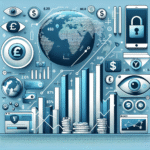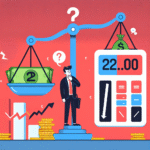Understanding the Hidden World of Financial Data on the Dark Web
The Dark Web: An Overview
Financial Data on the Dark Web: What’s Being Shared?
- Bank account credentials
- Credit card information
- Personal identification information (PII)
- Trade secrets and proprietary financial strategies
- Insider information about companies and markets
- Leakages from hacked financial institutions
How Do Traders Use Dark Web Financial Data?
- Insider Information: Traders look for leaked corporate earnings reports, merger plans, or leadership changes before they are publicly announced.
- Market Manipulation: Access to hacked or stolen data can facilitate pump-and-dump schemes or other manipulative tactics.
- Fraudulent Activities: Some traders use stolen credit card data to execute high-frequency trades or build false identities for market positions.
- Predictive Analytics: Buying leaked economic reports or sensitive political data can help forecast market movements.
The Risks Associated with Dark Web Financial Data
- Legal Risks: Purchasing or using stolen or leaked information is criminal activity, with hefty fines and imprisonment as possible penalties.
- Fraud and Scams: The dark web is rife with scams. Buyers risk losing money to fraudsters who sell counterfeit or useless data.
- Security Threats: Accessing these hidden sites often involves using anonymizing tools, which can expose users to malware, spyware, or hacking attempts.
- Reputation Damage: Being associated—whether actively participating or merely researching—the dark web can tarnish a trader’s professional image.
Legitimate Alternatives for Accessing Financial Data
- Financial News Outlets: Established services like Bloomberg, Reuters, and CNBC offer real-time news and in-depth analysis.
- Market Data Providers: Platforms like Morningstar, FactSet, and Yahoo Finance supply detailed data and analytics.
- Regulatory Filings: Company filings with the SEC or other authorities can provide insider corporate information legally accessible.
- Social Media and Public Forums: Traders increasingly monitor social platforms like Twitter and Reddit for market sentiment and breaking news.
- Expert Consultations: Hiring analysts or subscribing to professional research services ensures access to reliable intelligence.





